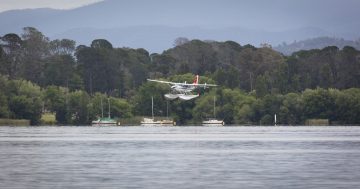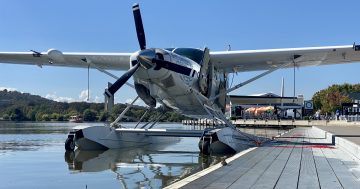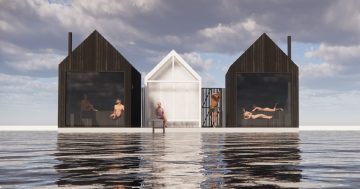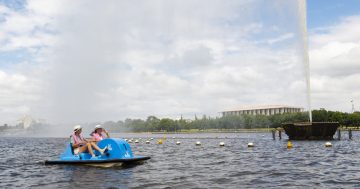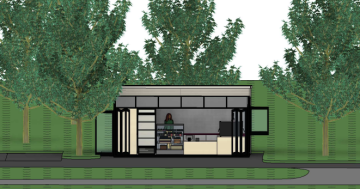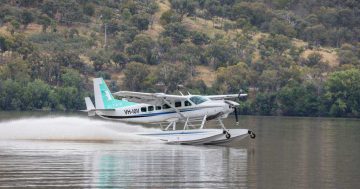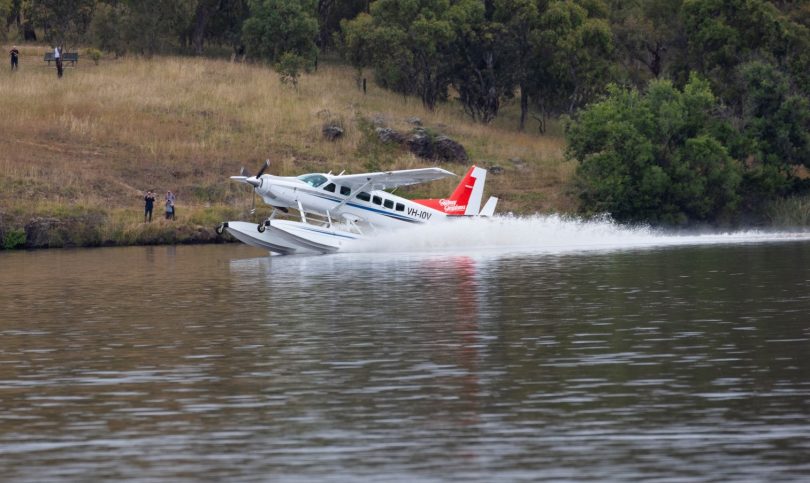
The Sydney Seaplanes Cessna Caravan test flight splashes down on Lake Burley Griffin last December. Photo: Thomas Lucraft.
Lake Burley Griffin could be changed forever if a seaplane service is allowed to operate on its waters, according to a heritage group.
The Lake Burley Griffin Guardians say in a submission to the National Capital Authority on its seaplanes discussion paper that such a service would set a precedent that would undermine the original intention of the lake.
The discussion paper canvasses proposals from Sydney Seaplanes and South Coast Seaplanes to run services to Canberra.
Sydney Seaplanes, which operated a test flight last December, is proposing four daily services between Rose Bay and Canberra, two of which would land on and take off from the lake, tying up at the dock near the National Museum of Australia.
The test flight involved a single-engine Cessna Caravan, but the company plans to use the bigger, two-engine amphibious Twin Otter operated by two pilots and carrying a maximum of 14 passengers.
South Coast Seaplanes initially would offer short scenic flights around Canberra, using single-engine Maule aircraft, but look to introduce packaged products, particularly targeted at international tourists, including direct connections with tourist attractions on the South Coast and in the Snowy Mountains.
Flights would initially be limited to two a day, one or two days a week between 9:00 am and 5:00 pm in summer months, with reduced hours in the winter.
The Guardians say the national capital is at a tipping point, with a seaplane service possibly paving the way for other uses on the lake that would destroy the quietly beating heart of the city that former prime minister Sir Robert Menzies referred to.
“The idea of allowing seaplanes to operate on the Lake is not a single, self-contained proposal as the NCA implies,” the Guardians said.
“It may lead to a qualitative change in the uses and abuses of the Lake by many prospective users. Many of them potentially noisy and destructive, since it might be said that all other peaceful, harmless uses have already been allowed.”
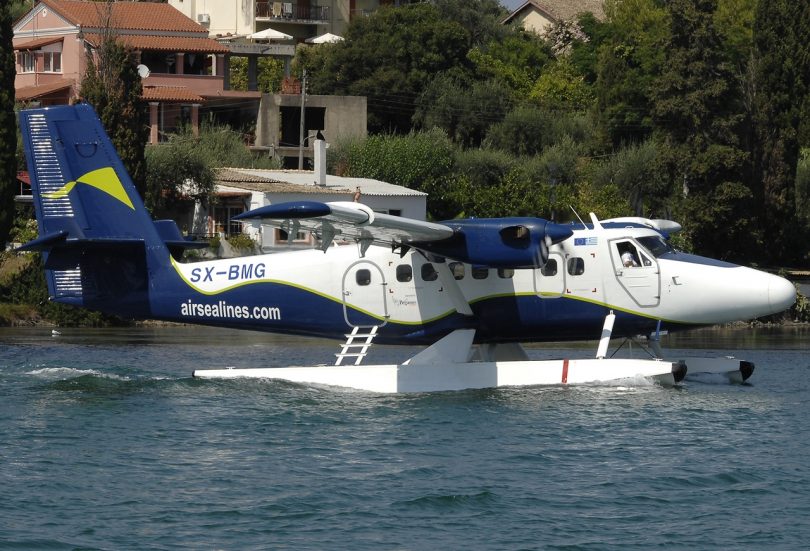
A Twin Otter aircraft of the type that Sydney Seaplanes would use. Photo: File.
They say approval of seaplane operations will inevitably lead to approval of water skiing and/or powerboat operations in the main basins of the Lake.
“The NCA could be open to legal challenge or political pressure should it try to prevent other noise and disturbance activities should combustion engine, powered seaplane operations become normalised.”
They fear that once small seaplanes are permitted, the operator is likely to press for larger, more powerful aircraft and an increase in flights to raise their return on investment.
The submission questions the value of a seaplane service to the ACT economy, saying that only a few interstate businesses and their rich clients, politicians and business commuters would benefit.
“We do not want to see the Lake turned into a runway for a wealthy few whilst detrimentally affecting water birds and other wildlife, and impinging on the amenity of many Canberrans and other Lake users who value the tranquillity of the Lake and its surroundings,” it said.
The submission criticises the NCA’s discussion paper, saying it lacks detail on the actual proposal that goes far beyond the test flight using a smaller aircraft that “was not representative of the potential cumulative impact of two operators with more aircraft, one larger with more flights”.
“The proposals clearly will have a bigger impact in terms of aircraft size and frequency of wake, noise, general disturbance, and risk,” it says.
The Guardians say further studies would be required to assess the full environment and heritage impacts of the seaplane service, including increased turbidity, erosion of the lakeshore from wake waves, disturbance of bird and animal life, noise pollution and the potential for fuel spills.
They say there is potential for conflict with other lake users and the proposals raise safety issues, particularly for the Canberra Yacht Club and its younger sailors.
“We believe the NCA needs to give far more attention to how the operators would, in effect, safeguard other Lake users if the Lake is to be used as a runway, as some of the users might not be able to avoid conflict/interference with a faster-moving flying craft,” they say.
Submissions have now closed.
If the NCA decides to continue, it will conduct more consultation on the issues raised. Seaplane operators will be required to apply for a licence to operate on the Lake, any other permits and submit a Works Approval for infrastructure such as mooring.













